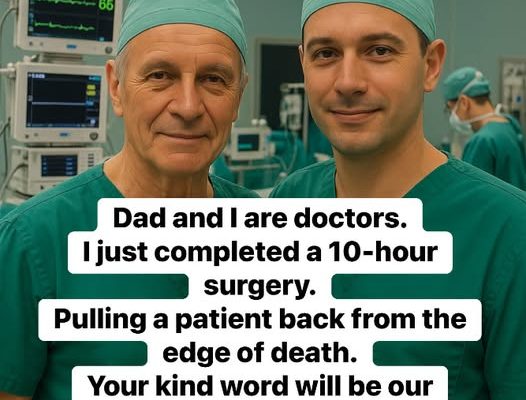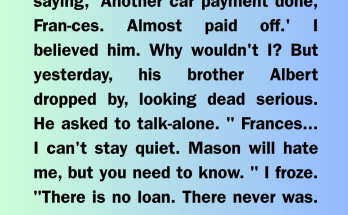I was the surgeon who walked into the operating room and found my father on the table; that night rewrote our relationship and the way I practice medicine.
The Call
It was 2:13 a.m. when the pager woke me. I remember the cold shock of the corridor lights and the way my hands trembled as I read the chart: my father, unstable, emergency transfer. I told myself I would stay calm, that I would be the doctor first and the son second. I told myself a lot of things to keep from running.
The Decision
When I stepped into the trauma bay, the team moved like a well-rehearsed machine. Monitors beeped, nurses called out vitals, and my father lay pale and quiet. For a moment I only saw the patient—then the face I had known since childhood. Protocol said one thing; the moment demanded another. I made the call to operate immediately. It was the hardest professional decision I had ever made because it meant choosing to be the surgeon who would cut into the man who had taught me to tie my shoes.
In the Operating Room
Scrubbing in felt surreal. My hands, trained to be steady, felt foreign. The team gave me space and support without asking questions. I remember the smell of antiseptic, the hum of the lights, and the steady voice of the anesthetist telling me to focus. The operation was complex; there were moments when the outcome hung on a single choice. I relied on training, on instinct, and on the quiet memory of my father’s laugh to steady me.
When the critical moment came, I made a split-second decision to alter the plan. It worked. The bleeding stopped. The monitors steadied. For the first time that night, I allowed myself to breathe.
Aftermath and What Changed
He woke up two days later, confused but alive. When he opened his eyes and saw me, there was no medical jargon—only the raw, simple exchange of father and son. We cried without words. In the weeks that followed, conversations that had been avoided for years came out naturally: apologies, regrets, and stories neither of us had told before.
Professionally, the night changed me too. I learned the limits of detachment and the power of presence. I became a better surgeon because I remembered why I chose this work—to save people, to be there when it matters most. Personally, I stopped letting pride keep me from saying the things that mattered.
What I Carry Now
That night taught me that medicine is not only about technique; it is about courage, humility, and love. I still scrub in, but now I do it with a different heart. My father and I are closer, not because of the surgery alone, but because the operating room forced us to face what we had been avoiding. The memory of that night stays with me in every case I take on, a quiet reminder that some decisions change more than a chart—they change a life.

